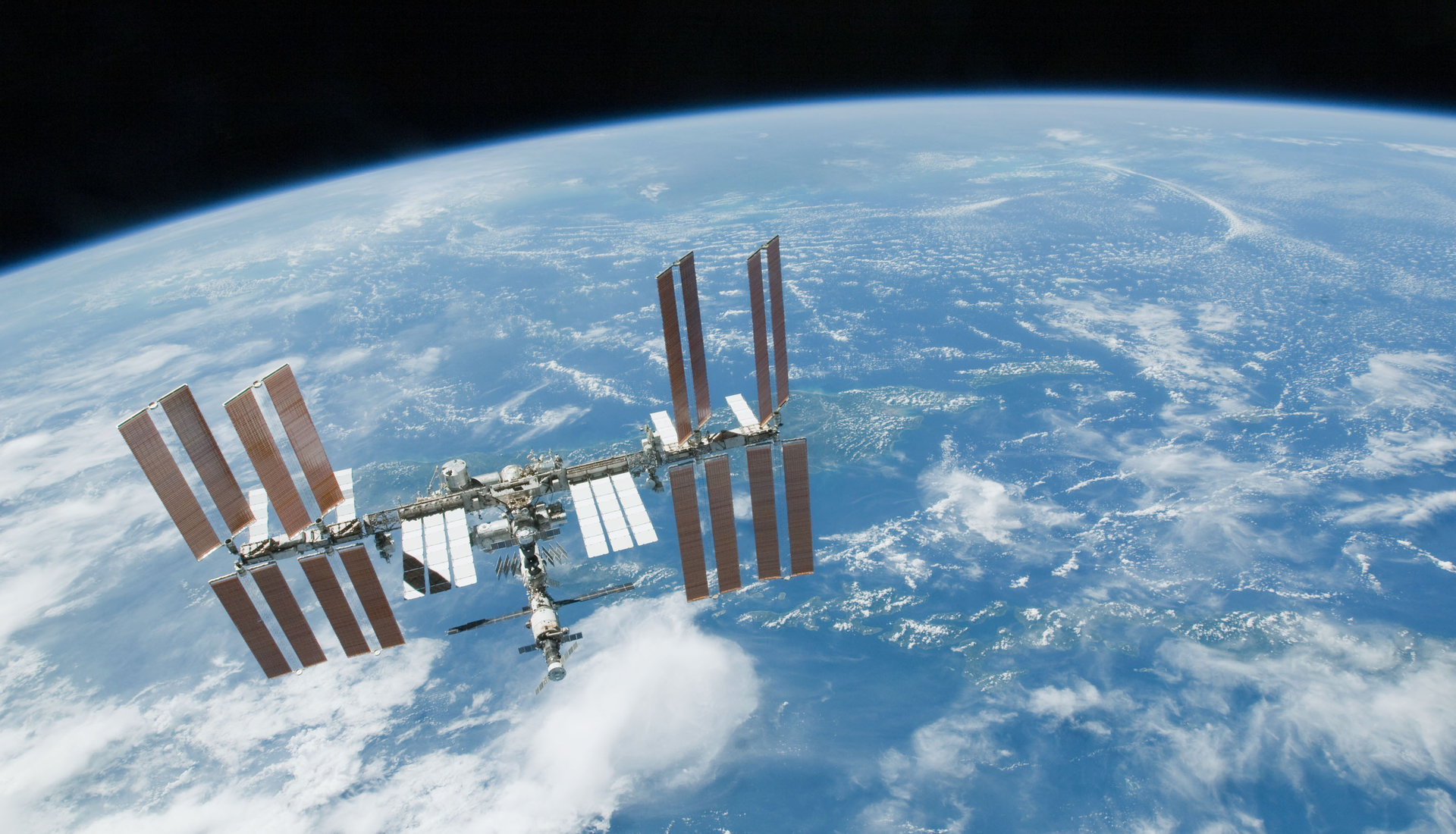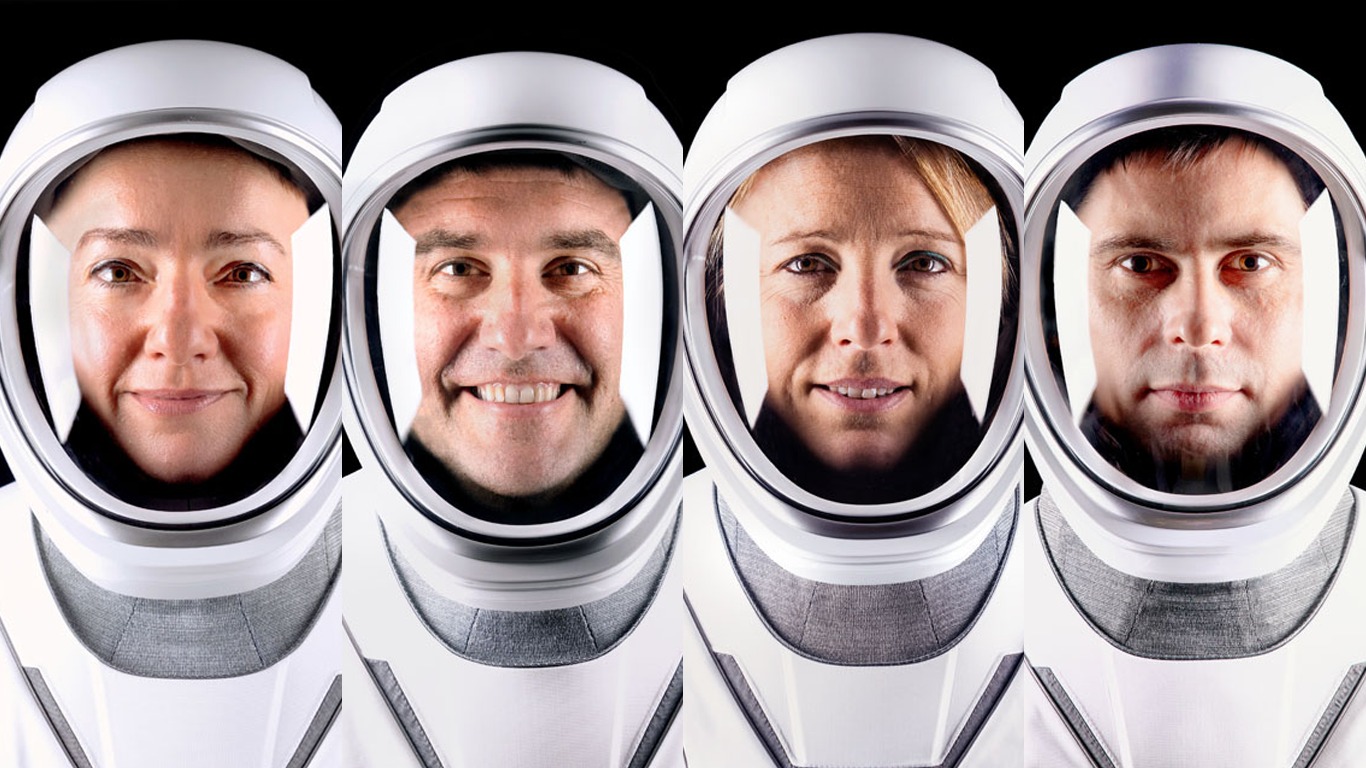Spaceflight Can Be a Real Pain for Astronauts

Astronaut Chris Hadfield remembers the headaches in his five months of spaceflight on the International Space Station in 2012 and 2013. It was a constant pain in his sinuses, along with stuffiness. The Canadian astronaut blew his nose frequently to clear his head and used mild pain medication to help him keep up with his demanding spaceflight schedule.
"It gets better over time, but it never goes away," Hadfield, the station's Expedition 35 commander, recalled in an interview with Seeker. "It's just a natural effect of weightlessness. You're going to have a clogged head, which in a lot of people leads to a throbbing headache."
Hadfield's anecdotal report is typical of astronauts. A.A. Vein, the principal investigator of an ongoing study, which has not been completed or peer reviewed yet, told Seeker that 21 out of 24 astronauts — a whopping 87.5 percent — reported a headache while they were spending time aboard the International Space Station. The investigation wrapped up in February after 14 crewed expeditions and seven years of work. Vein is an assistant neurology professor at Leiden University in the Netherlands.
The cause of the headaches, say researchers, could be that during space flight gravity isn’t pulling fluids through the body in the same way as on Earth.
Vein participated in a 2015 study in the journal Cephalalgia, which found that 14 out of 22 bed-rest subjects (64 percent), who laid in a head-tilted-down position, reported headaches. Bed rest is intended to simulate space conditions. In space, astronauts are floating in microgravity and fluid, such as blood, that would be pulled towards the feet remains in the head. Bed rest patients, when lying in a head-down position, also have blood pulled towards their head.
RELATED: Waste Not! Future Astronauts Might Turn Feces Into Food
Eye problems among astronauts are also a pressing issue for NASA because some of them come back from orbit with permanent changes in vision. Several studies are underway to learn more about the causes and possible solutions. Vein told Seeker that the headaches may be related to space adaptation syndrome — the physical disorientation astronauts feel during their first days in space — and "particularly to space motion sickness.” Without gravity's cues, in other words, many astronauts feel sick when they first arrive in orbit. But motion sickness tends to fade as the mission continues, allowing astronauts to somersault or do spacewalks without problems.
Breaking space news, the latest updates on rocket launches, skywatching events and more!
"Headache is a common symptom during space travel, both isolated and as part of space motion syndrome," the investigators wrote in the 2015 study, which was intended to compare bed-rest subjects to the International Space Station astronauts. "Head-down-tilted bed rest (HDTBR) studies are used to simulate outer space microgravity on Earth and allow countermeasure interventions such as artificial gravity and training protocols aimed at restoring microgravity-induced physiological changes."
Hadfield suggested that his own headaches and motion sickness in space are related. He remembers his first mission to the Mir space station in 1995, when high carbon dioxide levels — along with his movements in weightlessness around the large space station — made him sick on his third day in space. He added that while headaches and motion sickness are both symptoms of weightlessness, it's hard to prove a headache caused motion sickness, or vice versa.
RELATED: Mysterious Astronaut Eye Troubles Linked to Wonky Spinal Fluid
Headaches are common among astronauts, Hadfield said, but space agencies are becoming smarter in how to deal with them. Mild pain medications are always in stock on the International Space Station. Crew doctors keep track of pain severity, although Hadfield says it varies from person to person and it's hard to come up with an objective scale.
"It's probably something we can solve, like a lot of other things," Hadfield said. He said the key is to figure out what the cause is and how to best address it while allowing the human body to adapt to the weightless environment.
While the headaches are somewhat painful, nothing in Vein's results suggests permanent damage or an exaggerated effect on astronauts’ work. Once the causes of headaches are pinned down, NASA will likely implement more countermeasures for astronauts in orbit. The space station is in operation until at least 2024, giving NASA some time to perfect any treatment.
Originally published on Seeker.

Elizabeth Howell (she/her), Ph.D., was a staff writer in the spaceflight channel between 2022 and 2024 specializing in Canadian space news. She was contributing writer for Space.com for 10 years from 2012 to 2024. Elizabeth's reporting includes multiple exclusives with the White House, leading world coverage about a lost-and-found space tomato on the International Space Station, witnessing five human spaceflight launches on two continents, flying parabolic, working inside a spacesuit, and participating in a simulated Mars mission. Her latest book, "Why Am I Taller?" (ECW Press, 2022) is co-written with astronaut Dave Williams.
